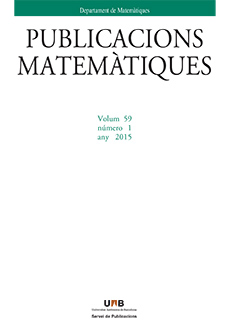Abstract
Characterizing whether a Markov process of discrete random variables has a homogeneous continuous-time realization is a hard problem. In practice, this problem reduces to deciding when a given Markov matrix can be written as the exponential of some rate matrix (a Markov generator). This is an old question known in the literature as the embedding problem [11], which has been solved only for matrices of size or . In this paper, we address this problem and related questions and obtain results along two different lines. First, for matrices of any size, we give a bound on the number of Markov generators in terms of the spectrum of the Markov matrix. Based on this, we establish a criterion for deciding whether a generic (distinct eigenvalues) Markov matrix is embeddable and propose an algorithm that lists all its Markov generators. Then, motivated and inspired by recent results on substitution models of DNA, we focus on the case and completely solve the embedding problem for any Markov matrix. The solution in this case is more concise as the embeddability is given in terms of a single condition.
Acknowledgments
All authors are partially funded by AGAUR Project 2017 SGR-932 and MINECO/FEDER Projects MTM2015-69135, PID2019-103849GB-I00, and MDM-2014-0445. J. Roca-Lacostena has also received funding from the Secretaria d’Universitats i Recerca de la Generalitat de Catalunya (AGAUR 2018FI B 00947) and European Social Funds. M. Casanellas and J. Fernández-Sánchez were also partially funded by project CEX2020-001084-M from the Spanish Government.
Citation
Marta Casanellas. Jesús Fernández-Sánchez. Jordi Roca-Lacostena. "THE EMBEDDING PROBLEM FOR MARKOV MATRICES." Publ. Mat. 67 (1) 411 - 445, 2023. https://doi.org/10.5565/PUBLMAT6712308
Information





